Join Our Team
We're seeking a Development Associate to play an important role in Upstate Forever's community relations and fundraising initiatives. Please apply by April 30.
Local Farms, Local Food: Part 4
May 8th, 2018
By Guest Contributors
Upstate Forever's work preserving farmland helps prevent urban sprawl, boosts community health, and contributes to a thriving regional food community.
For our Spring Issue of the Upstate Advocate, we reached out to local farmers, restaurateurs, retailers, and other stakeholders asking them what a thriving local food scene means to them.
Here, in the words of some of the people who know best, are a few reasons why Upstate Forever is working so hard to protect our region's vanishing farmlands. Part 4 of this blog series features thoughts from Grassfat Farm, Greenbrier Farms, Greenville Tech Culinary Institute, and Grits and Groceries.
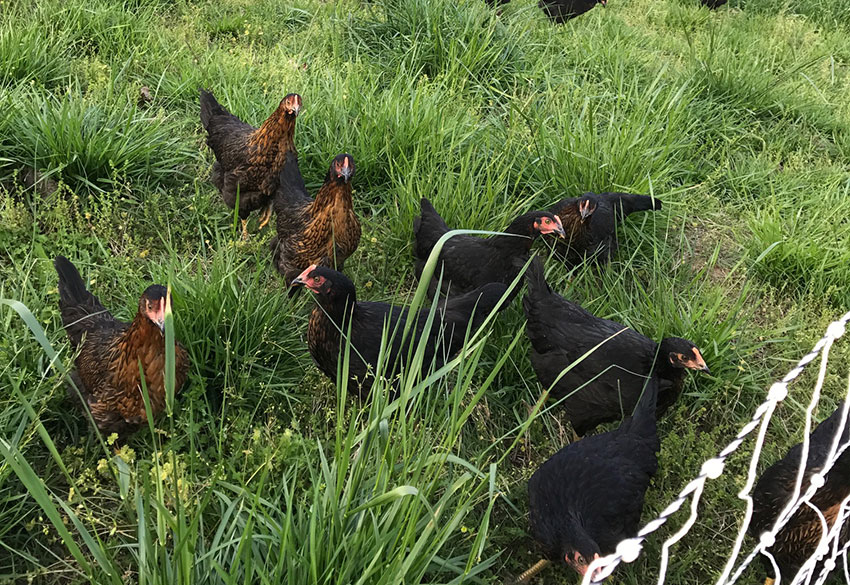
Grassfat Farm
What is your organization, and how do you see your role in the Upstate's local food community?
Grassfat Farm is a certified organic farm in Hodges, SC. We raise certified organic grass-fed-and-finished beef, and by finished we mean marbled just like what you see in the store (only we don’t use any grain to accomplish this… hence the name Grassfat). In addition to beef, we raise certified organic lamb, pork, chicken, quail, and Thanksgiving turkeys.
We strive to use the management practices that most closely approximate the way these animals would grow naturally in the wild, and we are big proponents of low-input organic farming and rotational grazing. This not only produces the highest quality products, but also creates a symbiotic relationship between the animals and the environment, gradually improving, rather than degrading, the land. That means ruminants like cows are fed grass and nothing else, our chickens get to chase bugs, our pigs get to root through the dirt, and our pastures get rest in between each rotation.
In addition to utilizing and promoting regenerative organic farming practices, we have been building out the missing infrastructure to help bring organic products from small farms like ours to tables across the Upstate. We founded the Southeast Mobile Slaughter Co-op, which operates the only certified organic slaughterhouse in South Carolina and is the only mobile USDA Slaughterhouse in the Southeast. This allows our animals to be processed right on the farm where they were raised and ensures the most humane and low-stress possible process, avoiding the negative effects that the stress hormone adrenaline can have on our meat quality.
We believe it is important for consumers to reconnect with where their food comes from, so once our animals are processed and inspected by USDA, they move to our mobile butcher shop on wheels, which is the only certified organic butcher shop in South Carolina, and we bring this right to the farmers market where our customers can watch us process the animal into final cuts ready for purchase.
What started out as a desire to raise clean, healthy food for our own family has grown into a bit of a mission to not only educate consumers but to help other farms in the Upstate work towards doing what we do. We hope to become something of a template that can demonstrate how small, local farms can be successful by working together and building a local food infrastructure tailored to meet the needs of both the farmer and the consumer, and bringing the two groups closer together in the process.
Why does having a thriving local food/farm scene matter to the Upstate?
One of the simplest ways to judge quality of life is by the quality of food that is readily available locally. When food production is outsourced to other states or even other countries, quality necessarily suffers. The only way to have truly fresh, high quality food is for it to be produced locally.
Why does it matter to you personally?
We started raising animals for our own family to ensure we had access to the highest quality food possible, but we quickly realized that, while we were not alone in our desire for locally produced organic products, not everybody can move their family to a 100 acre farm and start raising organic livestock. Since moving to the Upstate we feel like we have been welcomed with open arms, and we believe there must be some reason we have been so blessed with such a unique set of resources and knowledge, so we are eager to give back by supporting the the local food community in any way that we can.
In your opinion, what is the biggest benefit to buying/consuming local food?
The biggest benefit to buying local food is the ability to shake hands with the farmer and to see exactly how your food is being produced. The “certified organic” rubber stamp is all well and good, but when the consumer can ask the farmer exactly how they raise their animals, or what they do or don’t spray on their crops, the quality of what we eat will continue to improve, and the choices available to consumers will continue to increase.
What is your vision for the future of local food/farms in the Upstate?
We would like to see more farmers do what we are doing: raising animals using organic practices, using the methods that provide the maximum benefit to the welfare of the animals and the health of the end consumer, and bringing in-house as much of the food production process as possible. We envision regional micro-hubs of production and processing, rather than farmers having to drag their animals on to a trailer and drive them down the highway to far away cities and states, stressing out both the farmer and the animals. We would love to see less South Carolina beef shipped off to Kansas feed lots, and more production (and profit) stay here in the Upstate.
— George & Ashley Mylonakis | Grassfat Farm, Hodges | grassfat.com
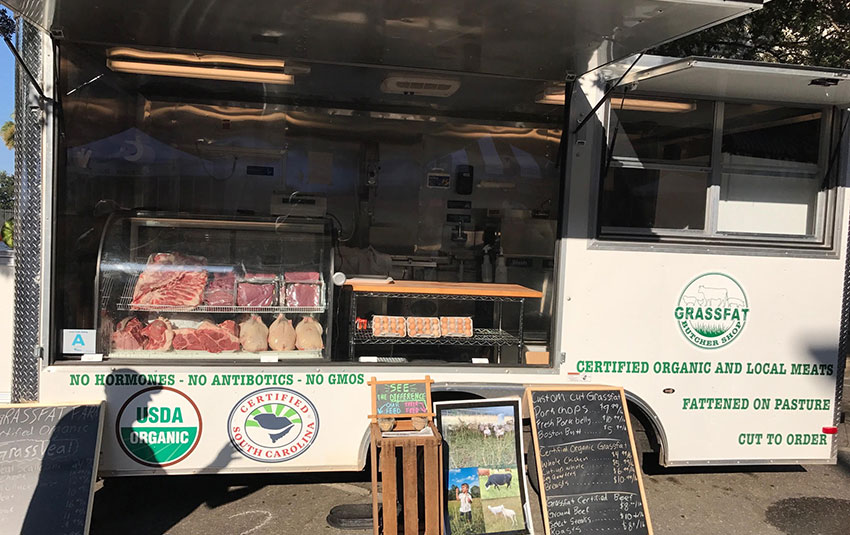
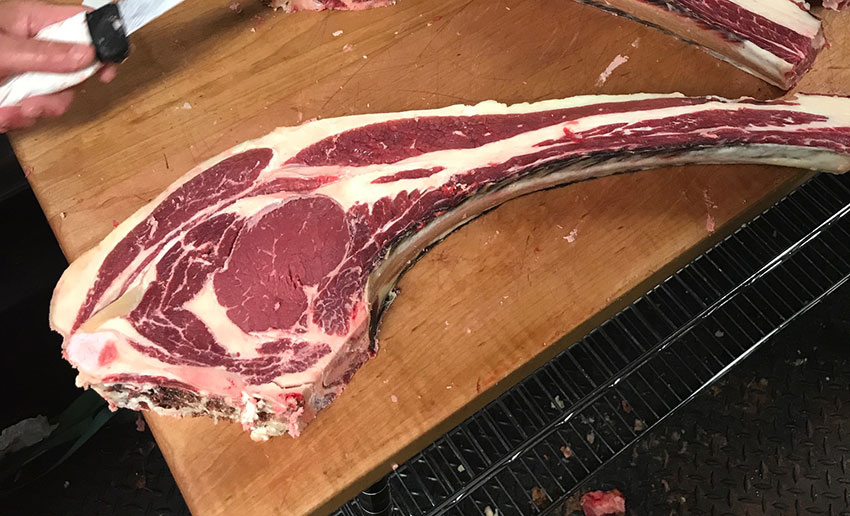
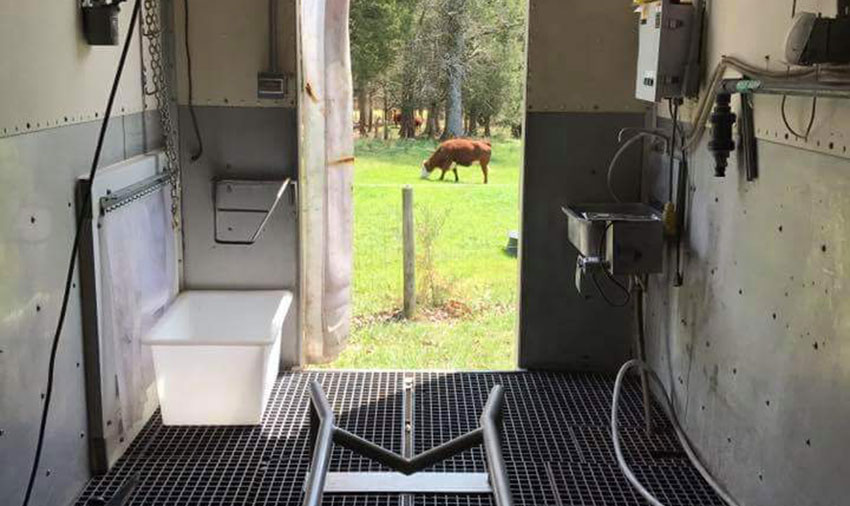
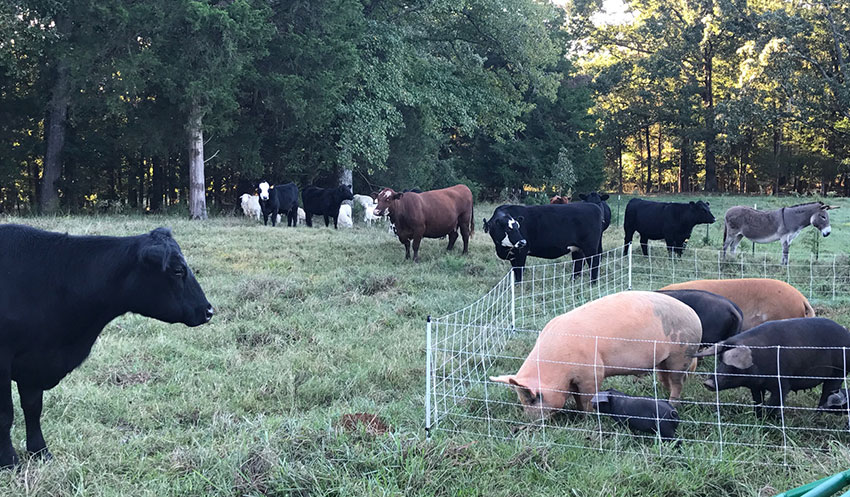
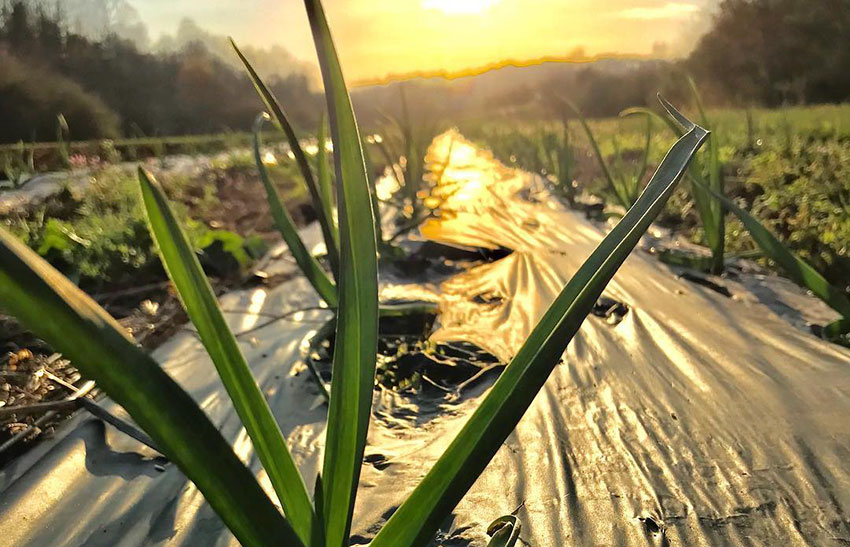
Greenbrier Farms
What is your organization, and how do you see your role in the Upstate's local food community?
Greenbrier Farms, and the upcoming restaurant Fork and Plough on East North Street. We sell to wholesale accounts, direct consumers, and restaurants all throughout the Upstate. We also sell to several universities in the surrounding areas — and have offered a CSA program for the past 9 years.
Why does having a thriving local food/farm scene matter to the Upstate?
No matter where you are in the world, everybody eats. The phrase “think globally, act locally” is true — it all starts in your community. We wanted to provide the best quality, freshest food to consumers with minimal transportation and fuel involved.
We’re truly a local business — we pay people living wages, we go to schools in this area, and we help support a local economy. When you purchase food from a local purveyor, it’s great for your community. Greenbrier Farms pays taxes that go towards local roads and local schools. From an environmental perspective, we hope to do right by the land as well. Our growing methods are as important to us as the sustainability aspect. It helps our future and our children’s future.
In your opinion, what is the biggest benefit to buying/consuming local food?
The quality of the food is a huge benefit. Our produce is certified organic, all of our beef is grass-fed, and all pork is pasture-raised. Our society has become so far removed from the source of our food, but there’s a tremendous benefit to knowing who your food comes from. When food is locally sourced, you can actually ask the farmer what his methods are, or how they protect the environment.
One hurdle is explaining why the cost is so much higher, but it is the truest cost of growing food. We are not subsidized. When you spend money locally, that money stays in your community. Sometimes people don’t see that.
What is your vision for the future of local food/farms in the Upstate?
I’d like for local food not to be a fad. I feel like it can seem like a fad when we rely on buzzwords like “farm to table” or others to market our products. People are going to eat three meals a day many years down the road. I would like for local food to be equal to commodity market food. To accomplish that goal, we need local food to be easier for the end user to purchase. When they go to Walmart, they can get tires, diapers, and cleaning supplies in addition to, say, lettuce. We need to figure out how to make buying local food that easy and convenient.
— Roddy Pick | Greenbrier Farms, Easley | greenbrierfarms.com
Culinary Institute of the Carolinas, Greenville Tech
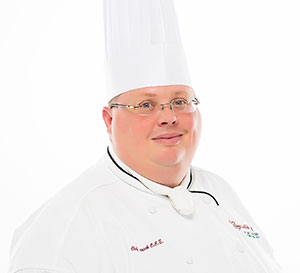 What is your organization, and how do you see your role in the Upstate's local food community?
What is your organization, and how do you see your role in the Upstate's local food community?
I am Chef Patrick Wagner from The Culinary Institute of the Carolinas at Greenville Technical College. We are an Exemplary Accredited Culinary Program that Programs symbolize the highest educational standards recognized by the American Culinary Federation Education Foundation Accrediting Commission (ACFEFAC).
As educators we help to support, grow, and encourage students and professionals in culinary traditions and trends. Our hands extend beyond our facility in the many organizations we support with our knowledge and leadership. I have been, and continue to be active in many local food insecurity organizations such as soup kitchens and perishable food rescue and the Carolina Farm Steward Association.
Why does having a thriving local food/farm scene matter to the Upstate?
The local food and farm scene is vital to feeding our mind, body, and soul. Having a thriving local food/farm scene helps to preserve traditions, build a community of understanding, and enrich our lives through our many senses. So many of our senses are involved with food that it has an opportunity to stimulate us in many ways that electronics and modernity does not.
Why does it matter to you personally?
I come from a background where gardening was a constant measure every year of my life. It could be the memory of the year my grandfather grew a huge plot of pumpkins for me and my brothers to harvest, picking green tomatoes prior to the frost, or the excitement of picking something you grew and the pride to share it. You don’t always have to go somewhere to get out in the world, sometimes it is getting out into your yard or neighborhood.
In your opinion, what is the biggest benefit to buying/consuming local food?
The biggest benefit goes beyond the relationships we build in our communities is a way of finding meaning and connectivity. How you choose to spend your money is like voting in a reality TV show, but the reality is that your dollars impact your community around you.
What is your vision for the future of local food/farms in the Upstate?
My vision is for a much larger portion and variety of our foods being available at a fair market value that is fair to consumers and farmers alike.
— Chef Patrick Wagner | Culinary Institute of the Carolinas, Greenville Tech | gvltec.edu/culinary_institute
Grits and Groceries
What is your organization, and how do you see your role in the Upstate's local food community?
Grits and Groceries Restaurant, our role is to be the best representative of our local farmers and the food they work so hard to provide for us.
Why does having a thriving local food/farm scene matter to the Upstate?
The more in tune our community is to the where their food comes from and their money goes — or, in this case stays in our community — the better for all.
Why does it matter to you personally?
I grow up at the end of family farming in the lower part of the state. I watched the end of families being able to make a living and support their families through farming, and I am happy to see a return to farming. Here at Grits and Groceries we try to spend every cent with a business in our zip code. It isn’t always easy to do, but the extra effort pays off in the friendships that we make.
In your opinion, what is the biggest benefit to buying/consuming local food?
The biggest benefit in buying local is that your money stays in your community.
What is your vision for the future of local food/farms in the Upstate?
I wish that local shoppers would try local first and demand it from their stores.
— Heidi & Joe Trull | Grits and Groceries Restaurant, Belton | gritsandgroceries.com
View more posts in this blog series at upstateforever.org/local-food. If you didn’t get a chance to respond, and would like to, please contact sboman@upstateforever.org. Participants’ views do not necessarily reflect the views of Upstate Forever.

